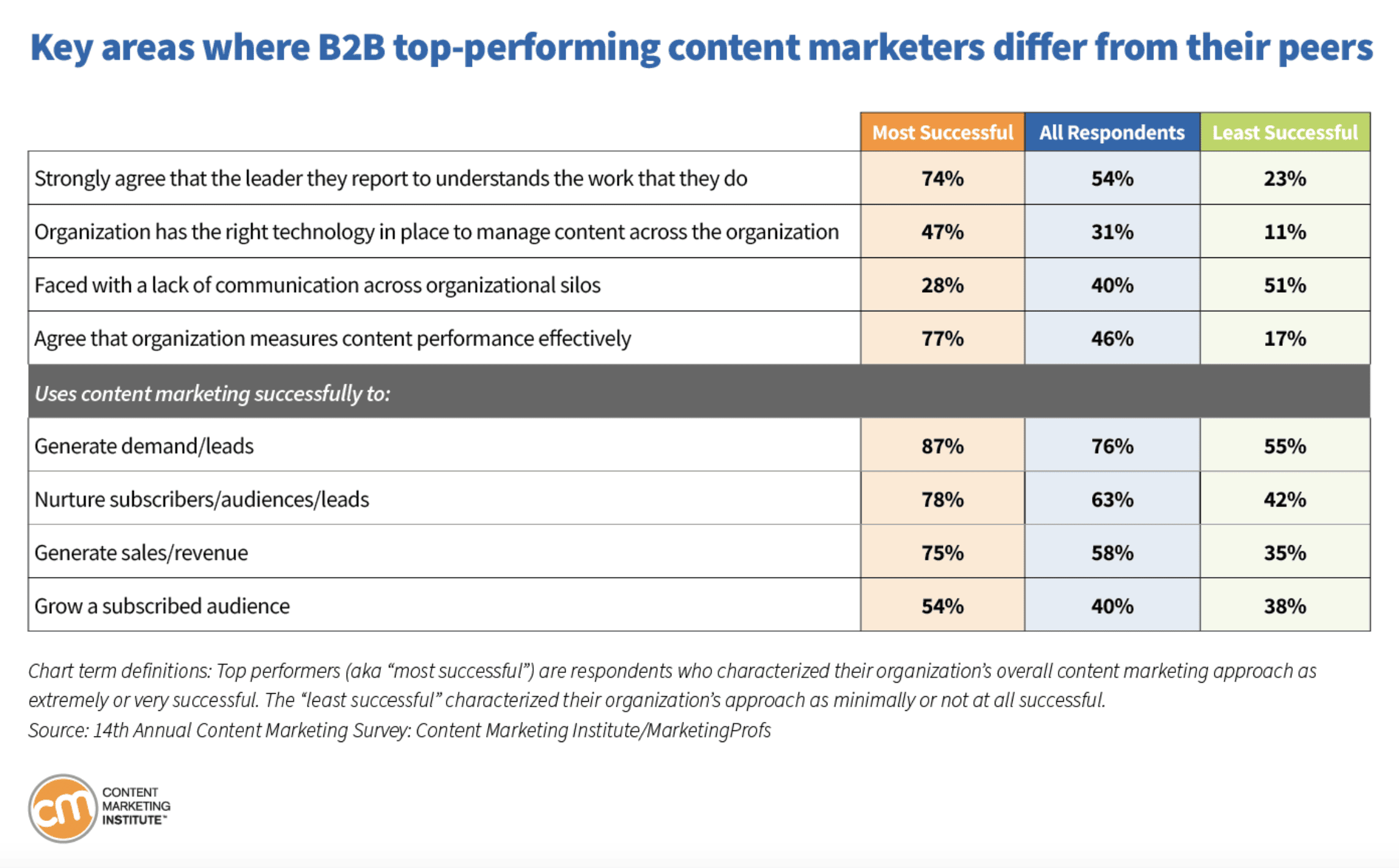
Does your boss get content marketing?
Did you ever work for a supervisor who didn’t understand your particular marketing discipline?
It can become super-frustrating when you know more than your supervisor about your field. It puts you in a horrible position: having to teach them about the right way to do your job, an awkward starting point for any conversation.
I faced that frustration again and again in my career when I worked for supervisors who hadn’t ever performed my particular discipline.
Learn from each supervisor
You can learn from each and every supervisor you report to.
From good bosses, you learn how to work better. From bad bosses, you learn which behaviors to avoid.
And you can learn what it takes to be a supervisor who makes a positive difference for their team. Observe what’s missing when supervisors are simply inert – neither helping nor hindering their team’s work.
Since I worked for 52 supervisors over the decades, I learned that when bosses don’t get it, they can force you down new paths to failure. “A bad boss is worse than no boss,” is a lesson I learned the hard way.

Many vice presidents and chief marketing officers (CMOs) ascended the career ladder because they were great at one discipline. Maybe they were an advertising ace. Or a public relations pro. Or a genius in crisis communications.
But if your supervisor understands only one marketing discipline deeply, they may view everything through that lens. If the only tool you know is a hammer, everything starts to look like a nail.
Does your leader understand you and your job?
The new Content Marketing Institute/Marketing Profs B2B survey sheds light on the huge performance difference between leaders who understand content marketing and those who don’t.
Here’s what the survey found:
- Among the marketers who strongly agree that their leader understands the content marketing work they do, three out of four (74%) rank among the most successful marketers.
- Among the least successful marketers, only one out of four (23%) has a leader who “gets” content marketing.
- In other words, when your leader understands content marketing as a discipline, you are three times likelier to become one of the most successful marketers.
I suspect the same is true of every marketing and communications discipline, not only content marketing.
The chart below shows survey findings that compare the most and least successful marketers, on the leader dimension and other dimensions.
For example, half of the least successful marketers suffer from a lack of communication across organizational silos – but only one out of four of the most successful marketers face that problem.

Content marketing is a hybrid discipline
To me, content marketing is an editorial function with demand generation bolted on.
The hybrid nature of content marketing matters. Why? Because professionals who bring skills from journalism and PR complement marketers’ demand generation and brand-building skills. The strongest content marketing teams include both types of talent.
Here’s how to apply these insights to help you have a happier, easier and more successful career.
Tips: When you interview for a new job
- When you interview for a job in content marketing or another discipline, ask your future peers how well the supervisor understands your specific function. This is a question better asked in person, so you can read their body language.
- Ask: when there’s training, does the supervisor train with the team or not?
Some leaders send their teams to train, but don’t participate themselves. So, when you learn new ideas that you want to put to work, their absence might enlarge the gap and undermine the team’s readiness for innovation. The best bosses train with their teams. Training together builds trust, skills and mutual understanding. - Find out which career paths are available to you from your next employer. Does the organization move people horizontally among different functions – for example, from trade shows and events to employer branding, to marketing communications, to financial communications? Or does the organization offer only vertical promotions within functional silos, such as content marketing? You learn lots more when you can move horizontally among different functions to become a well-rounded marketer on your way up.

Tips: When you coach your supervisor or executives
- If a knowledge gap prompts you to coach a supervisor or exec, always coach privately, one-on-one. Make it a person-to-person exchange, so they know that you have their best interests in mind.
- Never embarrass a supervisor or leader in front of others by pointing out what they don’t know. Poking at a supervisor’s weaknesses in a staff meeting can be a career-ending behavior.
- Keep marketing simple for higher-ups. Don’t expect them to do homework by asking them to read a book, a lengthy white paper, or long presentation. Instead, walk them through simple one-page marketing frameworks, step by step. For example, use our one-page strategy template to frame strategy.
Tips: How to move up faster
- Certain companies’ organizational structures are so static and unchanging that it’s hard to move up. Someone has to quit, get fired, or die for a promotion to open up. Save yourself grief: avoid employers whose organizations are inherently static, stifling or shrinking.
- Become a dream boss – the kind of supervisor you’d like to work for! Ask yourself which marketing disciplines you will need to master on your way up – and consistently seek the roles you want.
For example, when I joined a Fortune 100 company, I told my supervisor that I wanted a specific future role – to write the annual report to shareholders.The first time I asked for this role, my supervisor laughed out loud. She said, “We don’t even know you yet. You’re in a subsidiary, not at corporate, so you’d need to earn a transfer and a promotion before you can do that job.”
Over the next few years, I took on a variety of marketing and communications roles – trade shows and events, marketing communications, employee communications, and more.
And each year in my performance review, I consistently asked for the annual report job. After five years of asking, I finally got it. It was totally worth the wait. - Think beyond money as you negotiate a package. Bargain for bigger titles or roles when you make a career move – it’s worthwhile even if you don’t get all the money that usually comes with a particular title.
Career advancement can accelerate based on the title you hold. I’ve worked as a reporter, news editor and editor … and as a marketing specialist, manager, senior manager, director and vice president.
Clinching a director title was key to gaining a vice president role. Hard to accomplish but worth the fight.
We answer real questions from real marketers in our weekly blog. Subscribe here.

